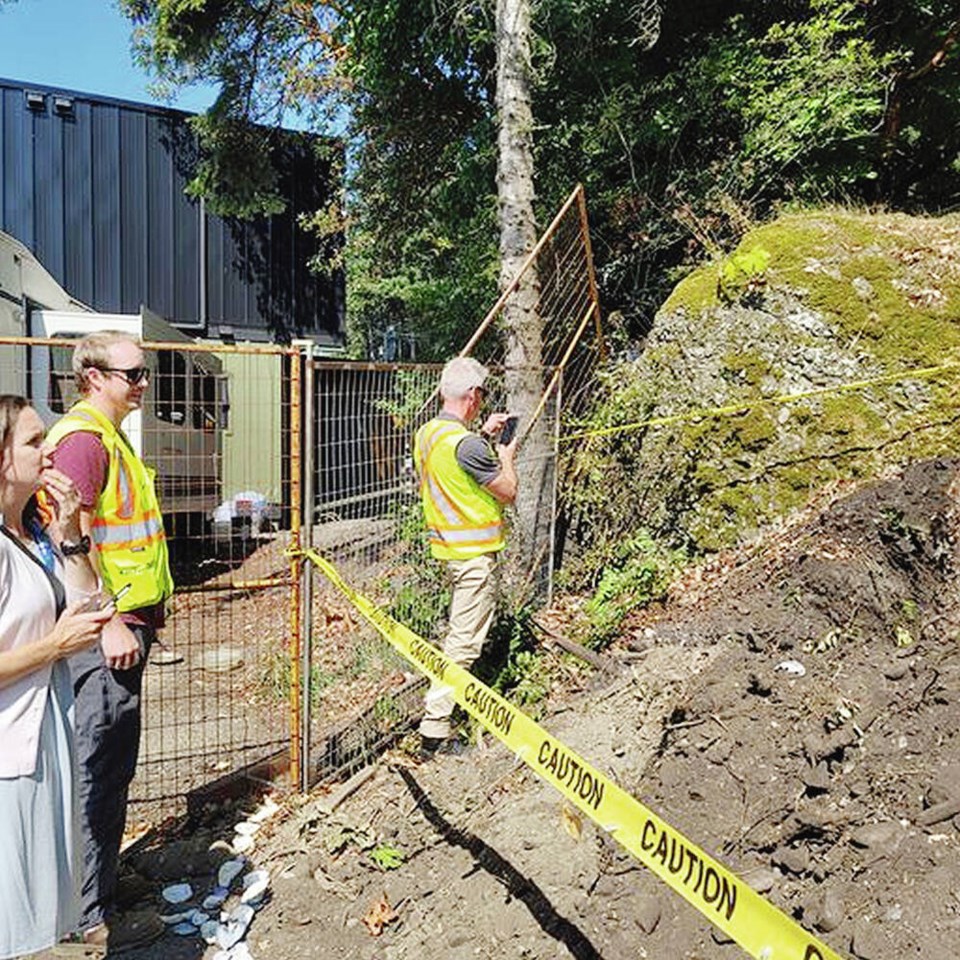B.C. Ferries officials met Wednesday with First Nations representatives who are “very disappointed” that company contractors disturbed a large shell midden at a historic village site at Shingle Spit on Hornby Island.
For its part, B.C. Ferries is “concerned and also very disturbed” about what happened at the environmentally and culturally sensitive site on Aug. 18, Brian Anderson, vice-president of strategy and community engagement, said following the meeting.
K’omoks First Nation chief and council members said in a statement that the area is a “well-documented, significant archeological site.”
“It was a major ancestral K’omoks settlement and it is the largest shell midden on Hornby Island.”
What happened to the midden was the latest damage at Clack da oo (Shingle Spit), which has suffered “irreversible impacts in the past,” they said. In spring 2021, a nearby construction project uncovered Indigenous human remains.
The Nation is disappointed when it hears that work is being done in its territory without following its cultural heritage policy. “It is our duty to protect our ancestral remains and cultural heritage in accordance with our cultural beliefs and stewardship obligations,” they said.
The matter is expected to be discussed at the chief and council’s meeting today.
B.C. Ferries hired contractors to do work to support installing a water cistern at the terminal. A water shortage had led to washroom closures that negatively affect customers, it said.
When B.C. Ferries learned of what happened to the midden, contractors were ordered to stop work. Senior ferries officials went to the Hornby to see the situation in person.
Anderson said B.C. Ferries is deeply committed to reconciliation and respectful relationships with First Nations partners.
Wednesday’s meeting was arranged to speak with K’omoks and with Qualicum First Nation leaders, walk the site and answer questions, he said.
“Further meetings will take place next week with the Nations once they have had time to review the outcome of today’s meeting and determine how best to remediate the sensitive site.”
All work involving ground disturbance or tree removal must have a written project plan, Anderson said.
This plan would include a review of any potential cultural or archeological significance, which would be factored into the planning. “That did not occur in this situation,” he said.
B.C. Ferries takes its responsibility for “safe and respectful stewardship of the lands and waters very seriously and we’ve taken immediate action to investigate how this situation occurred and what steps are necessary to prevent this type of situation from happening again,” he said.
B.C. Ferries president Nicolas Jimenez said on Tuesday that he was concerned about what had happened.
The company wants to “understand ourselves where our processes broke down such that this work began without the proper approvals and awareness within the company that it was happening.”
Community residents are unhappy that not only was the midden damaged but that a mature arbutus tree was taken out as well, said Christina Laffin, who is staying at her family home on Hornby.
“It was a real shock to community members on Hornby and seemed like yet another example of construction/destruction moving ahead without attention to the K’omoks First Nation and their rights and heritage.”
The midden was effectively demolished, she said. That sparked a community group to meet at the site on Monday to express their concerns.
Middens hold discarded remains of human activities over hundreds or thousands of years, the Royal B.C. Museum said. Shell middens hold many shells of clams, oysters and mussels, from human meals.
Archeological sites are protected on public and private lands under B.C.’s Heritage Conservation Act.
>>> To comment on this article, write a letter to the editor: [email protected]



